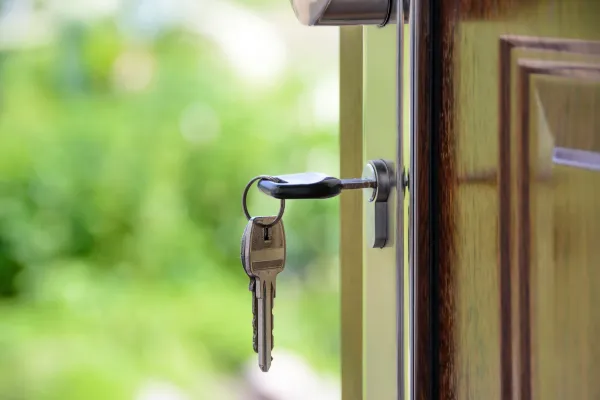You could be in the market for a new property, and have managed to shrink the list down to just one or two that really ignite a spark.
Maybe it’s not even the property you are after – maybe you have seen some land that you can fulfil your property dreams on by building a house of your own.
Before going any further, though, it may be a good idea to find out who owns the property, or the land. You wouldn’t want to be put all your efforts into trying to secure something that is unobtainable.
Let us guide you through how you find out who owns the property, or the land you wish to own and how you go about securing it for yourself when the time comes.
What are the reasons you may need to find out who owns property or land?
There can be a few reasons why you may need to know who holds the rights of ownership to a property. Some could be due to your property plans, others could just be down to curiosity. Most of the time, the reasons you need to know will stem from your wish to obtain the property. The most common reasons people investigate the ownership of a house are due to:
Wanting to buy it: You have seen the property, fallen in love with it and want it to be yours. However, you may have no idea if it is rented, owned, about to go on the market, or just recently bought. You might be able to find out who owns it and then put the wheels in motion to make it yours. Maybe the owners would be persuaded by a cash offer?
Price validation: You may see that this dream property is in fact on the market but are slightly perturbed by the price. Is it so low that there must be something wrong? Or is it so high it just doesn’t seem realistic. Researching the history of ownership could help you uncover why the price is what is it. A continuous cycle of sales could indicate there are issues that need rectifying and were not fully disclosed by the earlier owners. Residents have a duty to disclose certain information when selling a house so it is always worth reading out guide so you can ask the right questions when the time comes.
Future developments: There could be a variety of reasons the property is for sale or why you are interested in it. Sometimes, delving into the history will help uncover things you may not have been aware of. For example, there could be development plans for the area. This could be a huge make or break for whether you wish to go ahead with your property plan. Could the development work make your property more valuable, or would it instead make your hometown more like a building site? Likewise, if you are looking to buy a plot of land to build a house on, you need to know plans for the area, otherwise your dream build may be scuppered before you can even get started.
Just a natural curiosity: As mentioned earlier, some of us are simply curious, and what to know how much that luxurious house is worth and who might own it. Or, it might be that the land you see as a vast empty space is actually a wealthy landowner’s space for some exciting future work. With a little research, you could end up being the one “in the know”.
How to find out who owns a house
Now that you have spotted an intriguing property, your interest has been piqued. Whilst it is technically possible to simply knock on the door and ask who owns it, this may seem a little odd to the current resident or tenant, and you may not get a truthful answer. There is, in fact, an easier way to find out who owns a property of some land.
Follow a few simple procedures, and you’ve taken your first steps to potentially buying the property or land.
The HM Land Registry holds the records for all property and land ownership in the UK and Wales. These records hold what are known as the title deeds. They contain all the information in relation to the ownership of land or property and are very easy to obtain.
You can use the Land Registry to conduct a search in relation to the property or land. From here, you will be presented with a series of documents known as the title register, title summary and title plan. In the past, you would also see a flood risk indicator, something which would certainly play a determining role in whether you want to proceed with any plans for the property or land.
Title Register
This part of the title deeds covers information relating to the price paid for the land or property as well as ownership information, anything relating to the right of way and whether there is a mortgage on the property (or whether it has been discharged).
Title Summary
The title summary will show you the title number, ownership information and whether it is leasehold or freehold. If this is a property with a mortgage, you will be provided with the information about the lender.
Title Plan
The title plan is essentially your treasure map. You can see the location of the property, boundaries and rights of way. It is worth noting, though, that the boundaries are not always accurate.
Flood risk indicator
Some areas are much more prone to flooding than others. Having a flood risk indicator will therefore help you make an informed decision on whether the land or property is worth the price. This data is no longer provided under the HM Land Registry, and was withdrawn in mid-2021. However, you can access information via the government website with a simple postcode search. This information will not illustrate the risk per property, but instead per area.
How much does a land registry search cost?
With documents now stored digitally within the HM Land Registry, you will need to download the information you need. Originals tend to be kept with the solicitor or conveyancer that last acted on the sale of the property.
Once you have set up an account with the HM Land Registry, you can download the information you require. Current information on the government website indicates that a title register will cost £3, as will a title plan. The property summary is free. Some title plans are unavailable for download and if they are required, they can be posted to you at a cost of £7 per document.
Why would a property not be on the land registry?
It is very rare for a property not to show as registered, and this is not a problem. However, finding the ownership can be a little trickier. The reasons these properties tend to be unregistered is largely because there has not been a transaction of that property or land since it became a requirement to register ownership. Each region varies in when it became a requirement to declare ownership on the registry, so it is worth consulting the local authority for clarity.
Most commonly, you will find that these are properties that haven’t changed ownership between 1925 and 1985.
If you have eyes on a new property and want to snap it up after carrying out your research on the HM Land Registry, you may want to sell your home fast. At SOLD, we can help you get moving. As the leading online estate agent in the UK, we are experienced in selling a house quickly, efficiently and without any cost to you. Contact us today to find out more, or get an instant online house valuation now to help the next stages in your property plan’s progress.
















